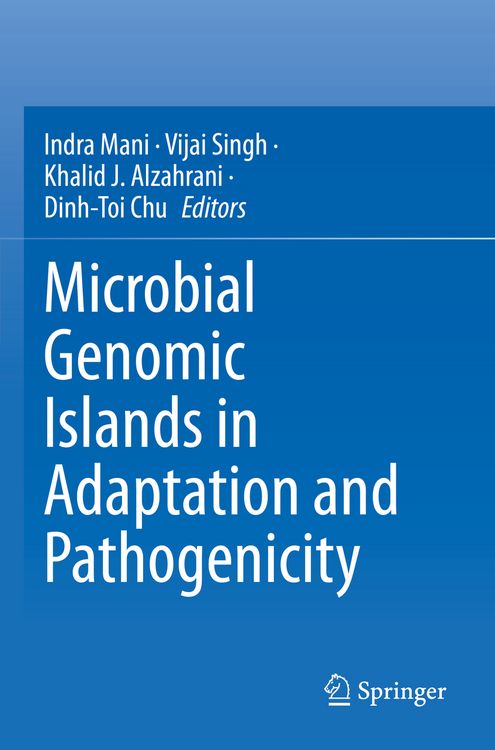Dr. Indra Mani is an Assistant Professor in the Department of Microbiology, Gargi College, University of Delhi (DU), New Delhi, India. He received M.Sc. (Microbiology) from Bundelkhand University (BU), Jhansi, UP, and Ph.D. (Biochemistry) in 2011 from Banaras Hindu University (BHU), Varanasi, UP, India. He completed postdoctoral (from 2011 to 2015) in the Department of Physiology, School of Medicine, Tulane University, New Orleans, LA, USA. He has worked as a Senior Research Officer (SRO) in the Department of Medicine, All India Institute of Medical Sciences (AIIMS), New Delhi, India. He has more than 10 years of research and teaching experience in Microbiology, Molecular Genetics, Cell Signaling, and Bioinformatics. He has published more than 50 research articles, 30 book chapters, and 3 books. He also has more than 100 NCBI-GenBank accession numbers. He has presented papers in national and international conferences. He has extensive experience in fluorescence/confocalmicroscopy, molecular cytogenetics, cell culture, microbial characterization, and in silico analysis. He serves as a reviewer of peer-reviewed journals and also a member of national and international societies.
Dr. Vijai Singh is an Associate Professor and Head of the Department of Biosciences, School of Science at Indrashil University, Rajpur, Mehsana, Gujarat, India. He was an Assistant Professor in the Department of Biological Sciences and Biotechnology at Institute of Advanced Research, Gandhinagar, India and also an Assistant Professor in the Department of Biotechnology at the Invertis University, Bareilly, India. Prior to that, he was a Postdoctoral Fellow in the Synthetic Biology Group at the Institute of Systems and Synthetic Biology, Paris, France and School of Energy & Chemical Engineering at the Ulsan National Institute of Science and Technology, Ulsan, South Korea. He received his Ph.D. in Biotechnology (2009) from the National Bureau of Fish Genetic Resources, Uttar Pradesh Technical University, Lucknow, India. During his PhD, he has cloned, expressed and characterized hemolysin from Aeromonas hydrophila in Escherichia coli .
He has extensive experience in Synthetic Biology including MAGE, small regulatory RNAs, pathway designing, CRISPR-Cas systems, and microfluidics. His research interests are focused on building novel biosynthetic pathways for production of medically and industrially important biomolecules. Additionally, his laboratory is working on CRISPR-Cas9 tools for genome editing. He has more than 9 years of research and teaching experience in synthetic biology, metabolic engineering, microbiology, and industrial microbiology. He has published more than 80 research articles, 49 chapters, 14 books, and 4 patents. He serves as an associate editor, editorial board member and reviewer of a number of peer-reviewed journals. He is also a member of the Board of Study and Academic Council ofIndrashil University and is the Member Secretary of Institutional Biosafety Committee (IBSC) in the same University.
Dr. Khalid J. Alzahrani is currently an assistant professor in the department of Clinical Laboratories Sciences at Taif University, Taif, Saudi Arabia. He earned a BSc in Laboratory medicine at Umm Al-Qura University, a MSc in Clinical Microbiology at Glasgow Caledonian University, and a Ph.D. in Infection and Immunity from the University of Glasgow. His main areas of interest are tropical diseases, drug resistance, vaccine design, proteomic and bioinformatics. He has published several research articles in peer-revised journals.
Dr. Dinh-Toi Chu is an expert and has extensive research experience in the molecular biology and cell technology. He currently serves as Director at the Center for Biomedicine and Community Health, International School, Vietnam National University, Hanoi, Vietnam. He is also a visiting professor at the Department of Cell Biology and Anatomy, College of Medicine, National Cheng Kung University, Tainan, Taiwan. Dr. Chu was a former researcher and Marie Curie Fellow at the Center for Molecular Medicine Norway and Institute of Cancer Research, Oslo University Hospital (Norway). Dr Chu has a strong background in biomedical science, with the Doctor of Veterinary Medicine degree focusing on infection immunity (Vietnam, 2006), a Master of Biological Science focusing on cancer and graft-vs-host-disease immunity (South Korea, 2011), and a PhD in Medical biology (Poland, 2015). He has more than 130 research articles in biomedicine and epidemiology in peer-reviewed journals, 8 books, and 5 book chapters. Since 2014, he has been a reviewer for about 40 several high-qualified scientific journals such as Nature Communications, the FASEB Journal, Frontiers in Pharmacology, Scientific Reports – Nature, and Biomedicine & Pharmacotherapy. Since 11.2017, he has been a Section Editor for the Journal of Advanced Biotechnology and Experimental Therapeutics. Now, he is also acting as a member of Editorial Board of the Bioengineered.
